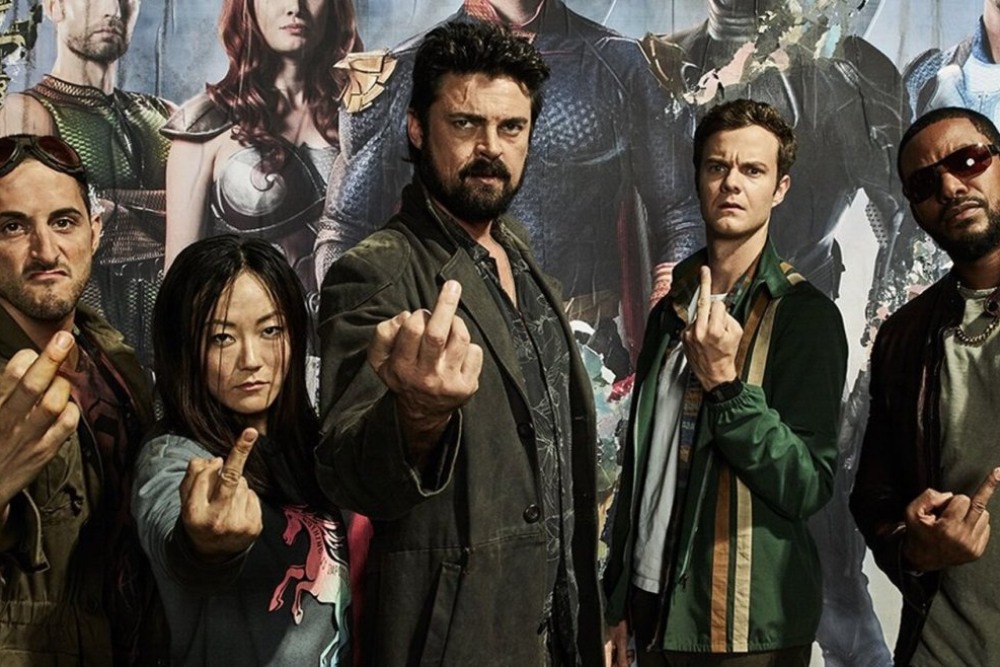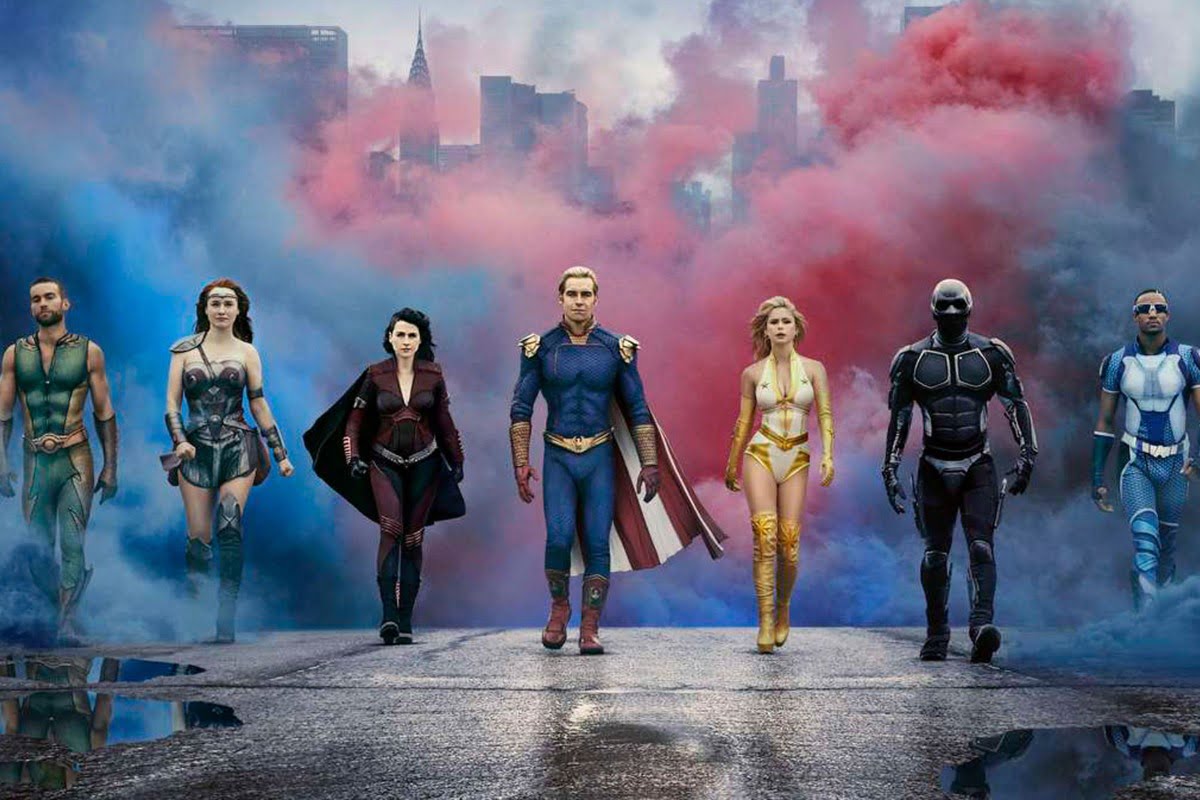Amazon series ‘The Boys’ inverts the superhero genre by portraying the protagonists as commodities – owned, controlled, and exploited by a major multinational monopoly. Only the power of the working class can fight the evils of capitalism.
A question often discussed on the nerdier sections of the internet is: Who would win in a fight – Batman or Superman? Ironman or Captain America? Thor or Hulk? Amazon’s The Boys instead asks: superheroes or capitalism? It answers definitively that the latter would win.
In this world, superheroes are commodities like any other. They are owned head-to-toe by a multinational monopoly, Vought International, which sells their services to cities; their images to advertisers; and their film rights to Hollywood – all raking in massive profits for their shareholders in the process.
Whilst traditional superhero films assemble heroes to defeat awe-inspiring evil, in The Boys we see the superhero squad known as ‘The Seven’ bickering over what share of the profit is theirs. In The Boys, our superheroes’ most valuable property is not their crime-fighting ability, but their ability to draw in ever greater wealth.
The Seven supposedly stop at nothing in their fight against crime. But most of their save-the-day moments are carefully prearranged media stunts, with professional camera crews on standby to capture their heroics and boost merchandise sales.
Rotten system
The clear injustice the logic of capitalism creates is displayed in the newest superhero character to join The Seven: Starlight.
On her first day in the job, Starlight is sexually assaulted by another superhero, The Deep. Despite her superior power (she can blind people with the sun, whilst he can only talk to animals), she is forced to submit to his will, out of fear of being kicked out of The Seven and being made unemployed.
This is the hellish reality facing many women in industry under capitalism, as has been brought to the surface by the #MeToo movement. It is not a case of one or two bad apples, but the very structure of capitalist society, which allows all kinds of abuse by the rich and powerful against women – particularly working class women – to take place.
Power of the monopolies
 The Boys goes further than this. Despite Starlight’s manager being a single mum, she is completely unwilling to take any action against The Deep, because of the hit in profits it would create.
The Boys goes further than this. Despite Starlight’s manager being a single mum, she is completely unwilling to take any action against The Deep, because of the hit in profits it would create.
Her and the other women running the company even place Starlight in a ludicrously sexualised outfit in order to rake in higher ratings, despite Starlight’s protests. The capitalists essentially tell the superhero: “Wear what you want. But if you want to remain in this company, you wear this.”
When Starlight finally exposes Vought International for its corrupt practices, she is told upfront by another superhero: “You don’t f*** with the money.”
We see that social relations under capitalism are not based on merit, intelligence, gender, or even your ability to fly. Rather, the ones with the real power are those who own the means of producing wealth.
In The Boys, we see how even a man who can run faster than the speed of sound, and a woman who can harness the power of the sun, are made to tremble in fear at the power of the monopolies and the capitalist class.
Limits of capitalism
It is with the character Homelander, however, that the limits of capitalism begin to be exposed.
Season two sees this character – engineered from birth by Vought International – increasingly turning against the company. The bosses begin to lose control of the commodity they have produced.
To quote the Communist Manifesto, Vought International has become “the sorcerer who is no longer able to control the powers of the nether world whom he has called up by his spells”.
A string of films and TV series have come out recently that critique capitalism. Like these, however, the writers of The Boys are ultimately unable to conceive of any other economic system.
The series shows how our society is dominated by money in every way imaginable. But in the end, it fails to ask: what is the alternative?
The truth is that the wealth of the capitalists comes neither from guns nor superpowers, but from the labour of the working class. Once this power is organised and unleashed, no force on Earth can stop it – not even that of laboratory-engineered superheroes!






